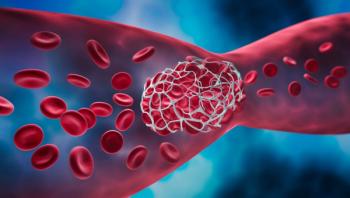
Anxiety, Depression, and Diabetes Higher in Older Males with Hemophilia; Cardiovascular Disease Lower
Lack of blood clotting may afford some protection against common cardiovascular disease events, such as ischemic stroke.
People living with hemophilia now can expect a longer lifespan than those who had the disease decades ago. Thanks to new advances in treatment, people with hemophilia now have an average life expectancy close to that of people without hemophilia. However, living into older age brings with it the risk of age-related comorbid conditions and the challenges of treating them, along with hemophilia.
A study
The study analyzed data of 2,237 males ages 45 years and older with hemophilia. Data was collected from over 100 hemophilia treatment centers across the U.S.
Data from the general population was obtained through the 2018 and 2019 Centers for Disease Control and Prevention National Health Interview Survey.
Results showed that males with hemophilia had nearly twice as high rates of anxiety and depression compared with the general population (18.5% versus 9% and 21.9% versus 11.2%, respectively). The rates of diabetes were 24% for people with hemophilia and 15.8% for the general population.
But with respect to cardiovascular disease, the people with hemophilia actually fared better than the general population. The rates of high blood pressure were 38.6% for participants with hemophilia compared with 49.5% for the general population. Coronary artery disease rates were 6.4% versus 13.8%; for stroke, the proportion were 2.4% among those with hemophilia compared with 5.3% without, and for heart attack, the rates were 2.2% versus 7.6%.
The researchers noted that the higher rates of mental health issues associated with hemophilia will put some attention on the psychological stress that people living with this chronic disease are burdened. They emphasized the need for further monitoring and social support to address mental health concerns in the hemophilia community.
This study was not designed to uncover the reasons for the higher incidence of diabetes in participants with hemophilia. But the authors speculate it may be related to higher rates of hepatitis C and obesity in the hemophilia group.
The researchers believe that the lower incidence of cardiovascular disease in the hemophilia group may be related to the nature of the disease. Because cardiovascular disease are often caused by blood clots, people with conditions that result in lack of blood clotting may be less inclined to have thromboembolic events, such as ischemic strokes and heart attack.
The authors noted, however, that as new hemophilia treatments bring patients closer to normal coagulation, cardiovascular disease in people with hemophilia may rise. They wrote, “Further study is needed to understand the impact of hemophilia on cardiovascular outcomes especially given the unique challenges of managing cardiovascular disease in the hemophilia population.”
Newsletter
Get the latest industry news, event updates, and more from Managed healthcare Executive.

























